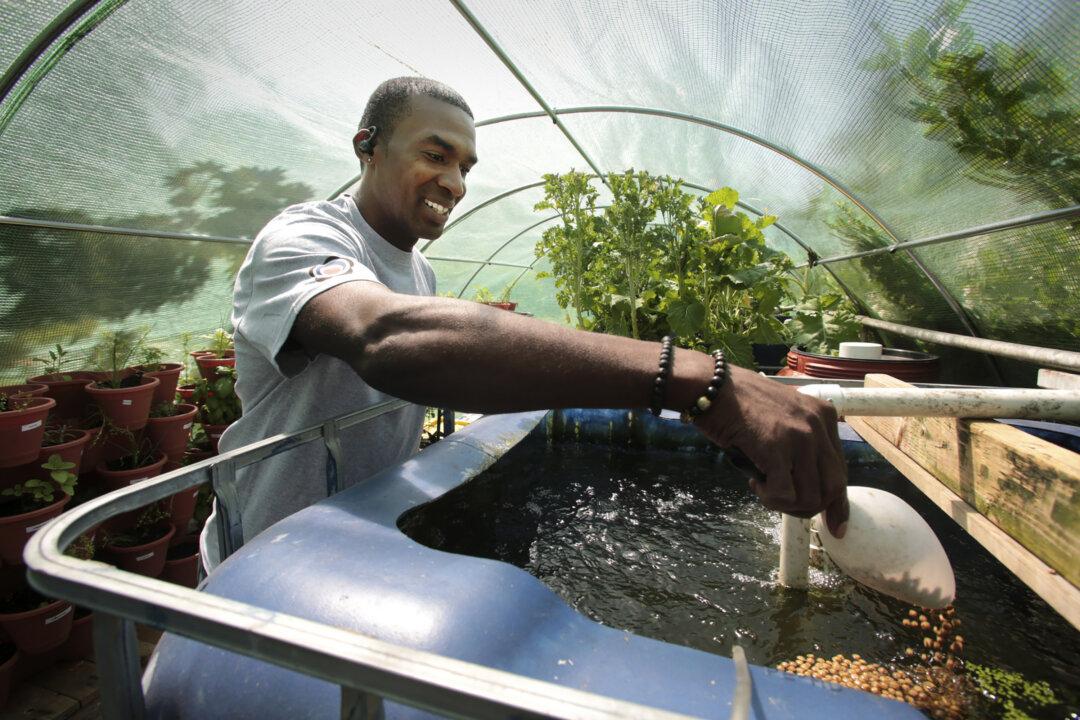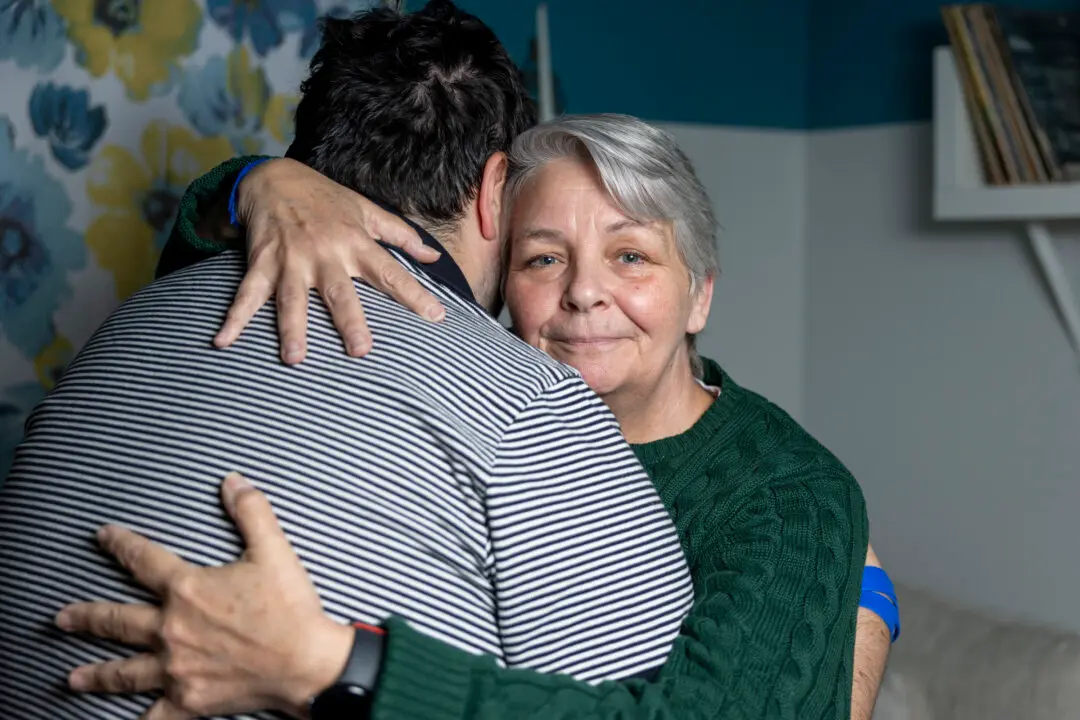By Ted Glanzer
From Hartford Courant
Backyard Farmer Raises Rabbits, Chickens, Tilapia, and Fresh Vegetables at Home. He Wants You to Do It, Too.

Hartford backyard farmer Travis Stewart feeds his tilapia fish that he grows in a large tank using a water filtering system he made in Hartford, Connecticut. Stewart started with an egg that became a compact garden that produces eggs, vegetables, and fish to eat for his family and friends. Michael McAndrews/Hartford Courant/TNS
|Updated:





